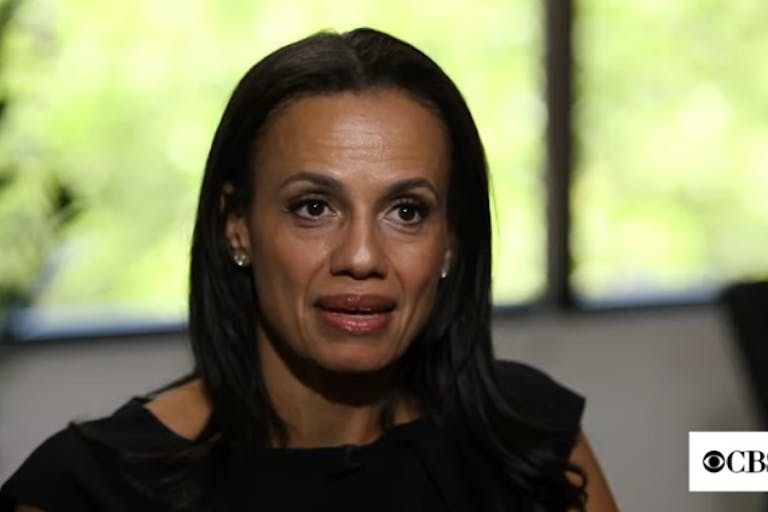
A growing number of Americans call themselves ‘pro-choice’ – but what’s really behind it?
Nancy Flanders
·
Planned Parenthood president derides pro-life movement as a ‘small minority’
With Roe v. Wade closer to being overturned than ever before, the abortion industry more concerned than ever. And that’s especially true for Planned Parenthood, the nation’s largest abortion chain. In an interview with Forbes, Alexis McGill Johnson, the president and CEO, spoke about the future of abortion with contributor Liz Elting. Together, McGill Johnson and Elting parroted falsehoods about abortion and the pro-life movement, and how women supposedly need abortion to survive.
Elting began by arguing that banning abortion “makes women less likely to build a successful career,” and continued to belabor that point throughout the interview. “Something I’ve discussed extensively in this column is how reproductive choice has been the sine qua non for women’s active participation in the workforce; the great expansion of our presence really picked up with both Roe v. Wade and improved access to contraception,” she said. “I keep thinking about how the loss of access to safe abortion — very likely to be followed by reduced access to contraceptive care in some states as well — is going to further set us back.”
She added, “How much less will employers consider women viable candidates for positions with career growth?”
McGill Johnson agreed, claiming that abortion is what has allowed women to be successful. “Access to sexual and reproductive health care, including abortion, has meant women can get higher education, get jobs, and take advantage of more opportunities to grow in their careers,” she said, adding, “As Treasury Secretary Janet Yellen noted, banning abortion will not only set us back generations but set back generations to come as well.”
A legal brief field by over 200 female scholars, however, completely destroyed this argument. They pointed out that there is no actual data to back up the claim that Roe had any effect on women’s success in the workplace. The laws which addressed women’s inequality — in areas of education, employment, the ability to own property, the ability to have credit, and more — also had nothing whatsoever to do with abortion. Women had already begun to succeed before Roe, and continued to do so afterwards.
“The election of the first woman in Congress, Jeanette Rankin, a Republican from Montana, predated even the passage of the Nineteenth Amendment. And in the years following its ratification, a number of women entered political office at the highest levels. Their ranks included U.S. Senators, Congresswomen, and governors. Women’s political accomplishments were not limited to their elections to public office,” the scholars wrote. “In 1938, Congress enacted the Fair Labor Standards Act of 1938, 29 U.S.C. § 206(d) (2012) establishing a minimum wage without regard to sex, due in part to the lobbying efforts of women. In Fay v. New York, 332 U.S. 261 (1947), the Supreme Court recognized that women are equally qualified with men to serve on juries. The pace of such changes accelerated in the 1960s, well before Roe v. Wade.”
They concluded, “It is impossible to claim that abortion access is specially responsible for the progress that American women have made in any of the above arenas, as compared with the massive array of statutes and cases described above and women’s vigorous pursuit of the opportunities they provide. Indeed, there is no study design that could credibly tease out such a causal link.”
Though roughly half of all Americans identify as pro-life, and even more support protections on preborn children, McGill Johnson waved it off as nothing more than a small minority ruining what everyone else in the country wants.
“History tells us that movements are never settled, not even by a landmark court decision,” she said. “We know that for as long as Roe has been the law of the land — that’s nearly 50 years! — there has been a small but vocal opposition trying to undermine the right to abortion, and they’ve managed to pull the levers of power to push their agenda.”
READ: Former abortionist confesses own abortion: I believed the lie that women needed abortion to succeed
The abortion industry has long claimed that most Americans want abortion to be legal and readily available. Yet polling routinely says otherwise. Even in recent polling, protections for preborn children enjoy heavy support, including laws limiting abortion earlier in gestation and parental consent laws.
Article continues below
Dear Reader,
In 2026, Live Action is heading straight where the battle is fiercest: college campuses.
We have a bold initiative to establish 100 Live Action campus chapters within the next year, and your partnership will make it a success!
Your support today will help train and equip young leaders, bring Live Action’s educational content into academic environments, host on-campus events and debates, and empower students to challenge the pro-abortion status quo with truth and compassion.
Invest in pro-life grassroots outreach and cultural formation with your DOUBLED year-end gift!
Furthermore, most Americans don’t truly understand what overturning Roe entails. When they do understand, they support overturning Roe. And this includes women, too; 7 in 10 women favor significant protections for preborn children.
Incredibly, Elting and McGill Johnson argued that abortion must remain legal in order to keep pregnancy safe.
“Our country already has the highest maternal mortality rate of any industrialized nation — in fact, that rate has been rising here in the U.S. as it declines just about everywhere else in the world,” Elting said. “The loss of Roe v. Wade is likely to see that increase as it ushers in forced pregnancy.” But the Washington Post already debunked this idea.
“While abortion may not always be the desired outcome of a pregnancy, having access to it throughout a pregnancy can be the difference between life and death,” McGill Johnson agreed. “Banning abortion would make it more difficult for pregnant people who face complications to get the care they need to protect their own lives.”
Yet the intentional homicide of a preborn child — which is what abortion is — is not medically necessary. If a woman is facing severe complications, homicide is not the answer. In situations like gestational diabetes, pre-eclampsia, problems with the placenta, heart problems, and more, even abortionists — like Don Sloan — have had to admit that abortion does nothing:
If a woman with a serious illness – heart disease, say, or diabetes – gets pregnant, the abortion procedure may be as dangerous for her as going through pregnancy … with diseases like lupus, multiple sclerosis, even breast cancer, the chance that pregnancy will make the disease worse is no greater that the chance that the disease will either stay the same or improve. And medical technology has advanced to a point where even women with diabetes and kidney disease can be seen through a pregnancy safely by a doctor who knows what he’s doing. We’ve come a long way since my mother’s time…
The idea of abortion to save the mothers’ life is something that people cling to because it sounds noble and pure- but medically speaking, it probably doesn’t exist. It’s a real stretch of our thinking.
It is true that a pregnancy may need to be ended early, which may mean that a child could be born too early to survive, despite assistance. Yet the active, intentional taking of a life is not what legitimate health care providers engage in. If a woman has life-threatening pre-eclampsia, for example, the doctor would perform an emergency c-section in which the baby could be delivered in less than an hour. A late-term abortion takes days, and if a woman’s life is truly at risk, a doctor won’t risk that time.
As for maternal mortality, it is true that the United States has an unacceptably high maternal mortality rate. But a 10-year study also found that abortion does not improve maternal mortality rates at all. In fact, various countries have shown this very thing — that abortion improves nothing in this regard and may have the opposite effect.
The claim of abortion solving the problem of maternal mortality — or any of the other claims from the abortion industry — are not based in any sense of reality.
“Like” Live Action News on Facebook for more pro-life news and commentary!
Live Action News is pro-life news and commentary from a pro-life perspective.
Contact editor@liveaction.org for questions, corrections, or if you are seeking permission to reprint any Live Action News content.
Guest Articles: To submit a guest article to Live Action News, email editor@liveaction.org with an attached Word document of 800-1000 words. Please also attach any photos relevant to your submission if applicable. If your submission is accepted for publication, you will be notified within three weeks. Guest articles are not compensated (see our Open License Agreement). Thank you for your interest in Live Action News!

Nancy Flanders
·
Analysis
Cassy Cooke
·
Analysis
Cassy Cooke
·
Analysis
Cassy Cooke
·
Analysis
Cassy Cooke
·
Analysis
Nancy Flanders
·
Analysis
Cassy Cooke
·
Analysis
Cassy Cooke
·
Analysis
Cassy Cooke
·
Analysis
Cassy Cooke
·
International
Cassy Cooke
·